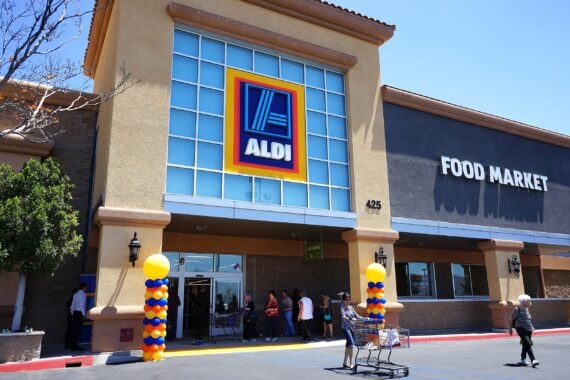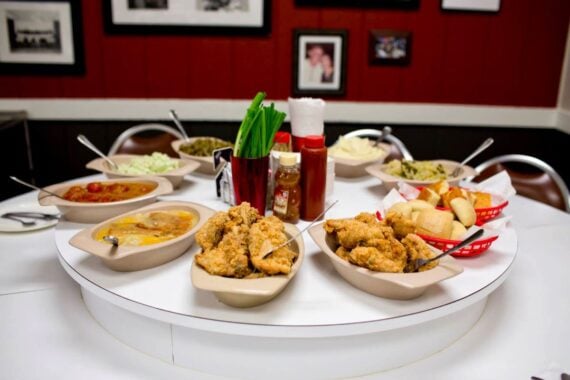Aldi, a budget grocery store with European roots, is a famous disruptor of the industry, mainly because its streamlined shopping experience and cost-saving measures translate into big price reductions on common items. It’s growing fast, too — faster than any other grocery chain in the country, according to Food Dive, with plans to open 150 new stores in 2022. The Aldi shopping experience, however, can be unfamiliar and even intimidating to novices. Here’s everything you need to know about Aldi, and what to expect when shopping there.
Related: I Shopped at Aldi for the First Time and Here’s What I Learned
There’s a Fan Club
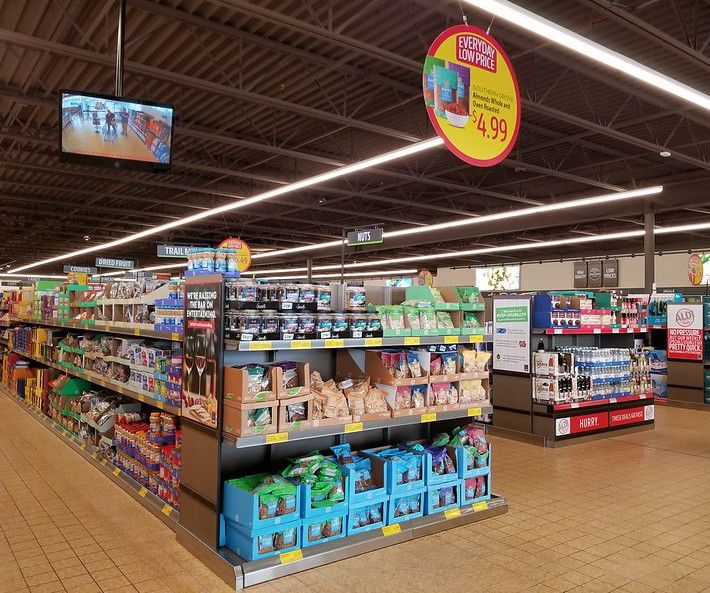
Aldi is so beloved — especially the ever-changing seasonal center aisle, affectionately nicknamed the Aisle of Shame — that there’s a Facebook fan club with over a million members. The busy public group of enthusiastic shoppers discusses trips to the store, details recent purchases, and gives honest product reviews. Like all hobby-based communities, members have their own language, including a very unique way of identifying each other in store. If you happen to hear someone “caw caw” like a crow while you’re shopping at Aldi, don’t be alarmed: That’s just one Aldi uberfan trying to locate others.
Related: These 10 Aldi Products Are Customers’ Favorites
Don’t Expect to See Many Familiar Logos

More than 90% of everything sold in Aldi stores is packaged under the Aldi brand. Although the name may be unfamiliar, the products are created by some of the largest U.S. food producers. According to Aldi, this allows its products to meet strict quality standards at a much lower cost.
Related: Aldi Products That Taste Like Name Brands — and Some That Definitely Don’t
Shopping at Aldi Could Save Big Bucks

Aldi claims that by switching from national brands for weekly necessities such as meat, bread, and produce, customers can save as much as half off their grocery bills. How? Aldi avoids hidden costs such as marketing and advertising that other stores pass on to customers.
Related: 24 Organic Grocery Bargains From Aldi
Walmart Is Taking Notice
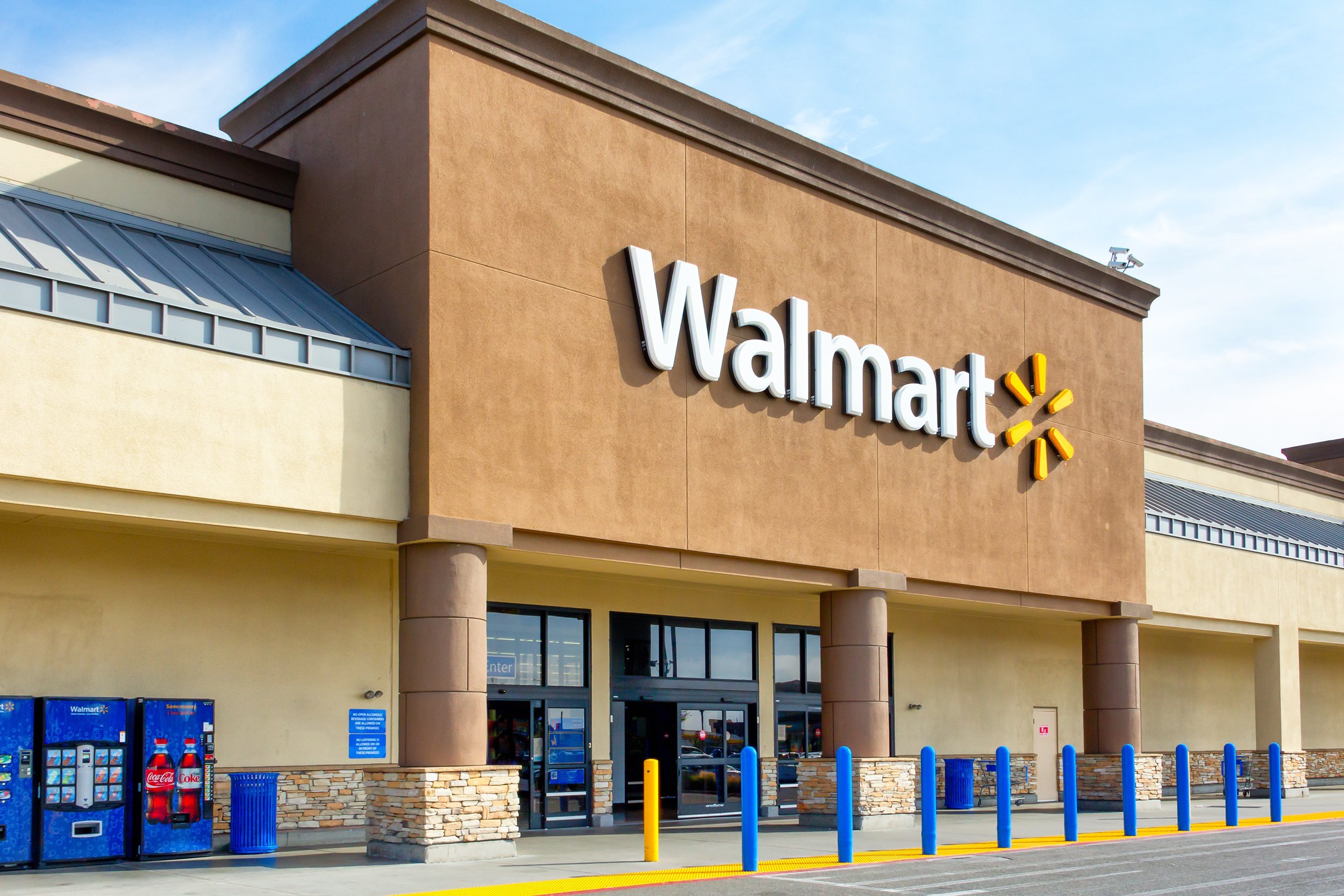
Retail king Walmart launched a price war some years back designed to slow Aldi’s momentum and reclaim coveted discount shoppers, leaning on suppliers and manufacturers such as Procter & Gamble to lower prices by 15%, according to Reuters. Aldi responded in 2018 by announcing plans to expand its fresh food sections by 40%. Who won? Shoppers.
Related: 30 Family Meals You Can Make for Under $10 at Aldi
Aldi Goes Beyond the Basics
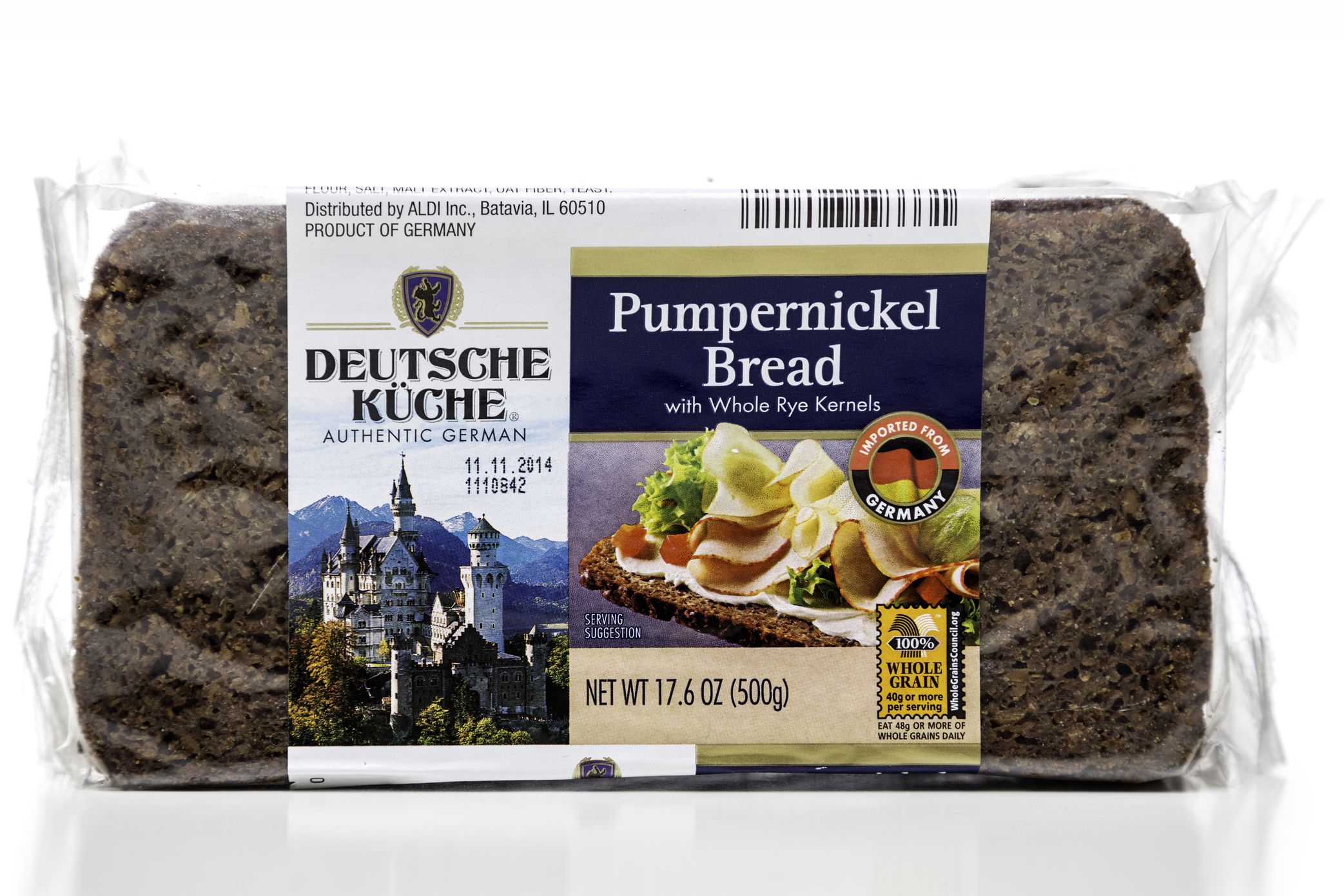
Aldi has a reputation for focusing on workaday food staples. Shoppers unfamiliar with the store might be surprised to learn they can also find items such as European chocolates, almond milk, smoked salmon, award-winning cheeses, and quinoa.
For more great shopping guides and grocery tips, please sign up for our free newsletters.
Trending on Cheapism
You’ll Pay a Quarter for a Cart, But You’ll Get It Back
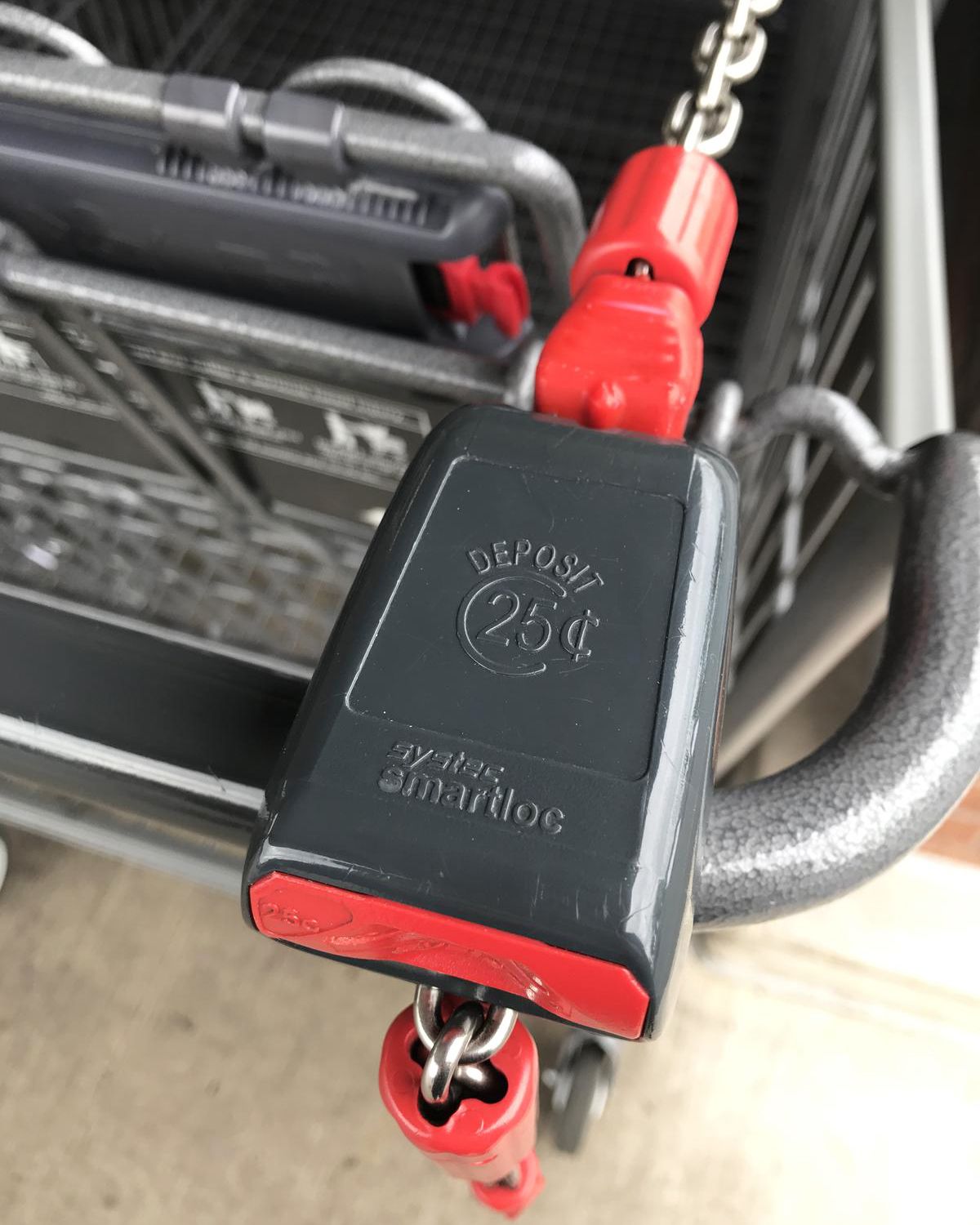
At most grocery stores, paid employees spend hours corralling stray shopping carts. Aldi reduces labor costs by keeping its carts in one place. To use one, you pay a quarter; when you return it, you get the quarter back. Don’t have a quarter? Ask to borrow one from an employee (be sure to return it!).
Related: How Do Costco, Trader Joe’s, and Aldi Stay So Cheap?
Aldi Is BYOB (Bring Your Own Bag)
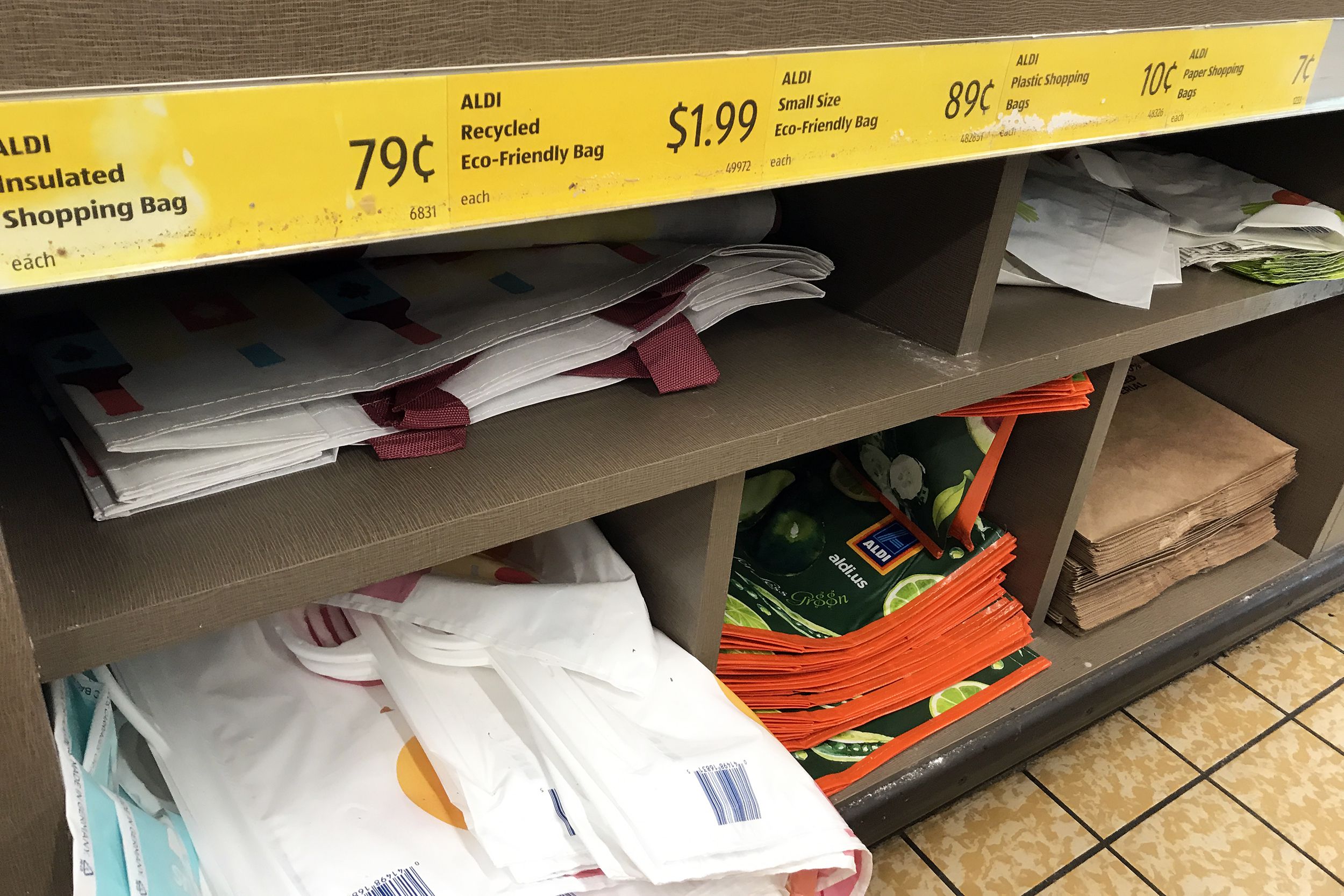
Aldi discovered another opportunity for savings at the checkout line. As part of its simplified approach, Aldi doesn’t give away bags. Shoppers bring their own or buy reusable bags. The money saved on plastic and paper bags goes toward lower price tags on Aldi products.
Related: 24 Earth-Friendly Habits That Can Save You Money
Don’t Wait for the Grocery Bagger (They’re Not Coming)

The Aldi model is all about trimming the fat to create savings, and a big part of that is lean staffing. Just like there’s no shopping cart chaser, there’s no grocery bagger. Shoppers bag their own groceries — which might be preferable anyway.
Related: These 32 Stores Are Getting Rid of Cashiers and Checkout Lanes
Sign up for our newsletter
Aldi Doesn’t Have the Most Convenient Hours
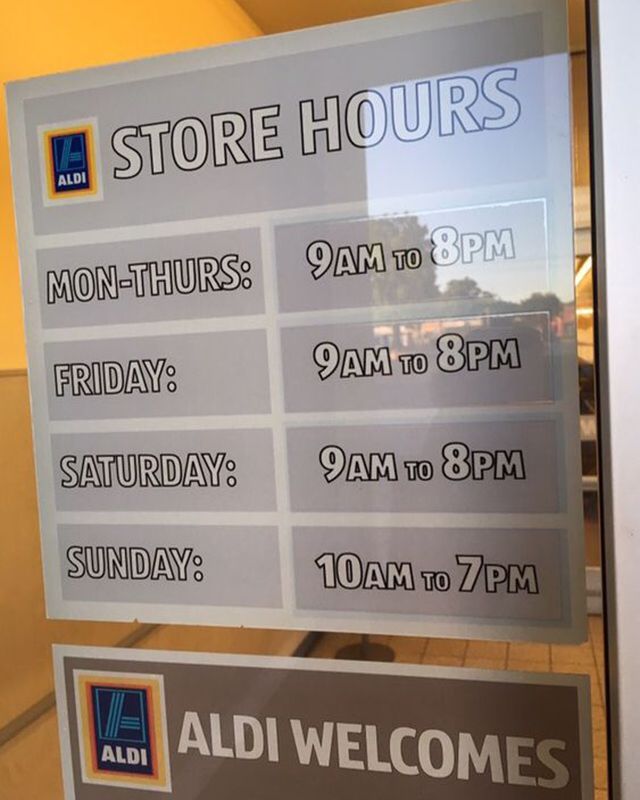
Competitors are likely open earlier and later than Aldi — by design. Aldi’s lean business model dictates that the store opens only during peak shopping hours. Depending on location, doors are likely to open at 9 a.m. and close within a maximum of 12 hours.
Related: 17 Ways Grocery Stores Have Changed Over the Past 50 Years
Leave the Coupons at Home
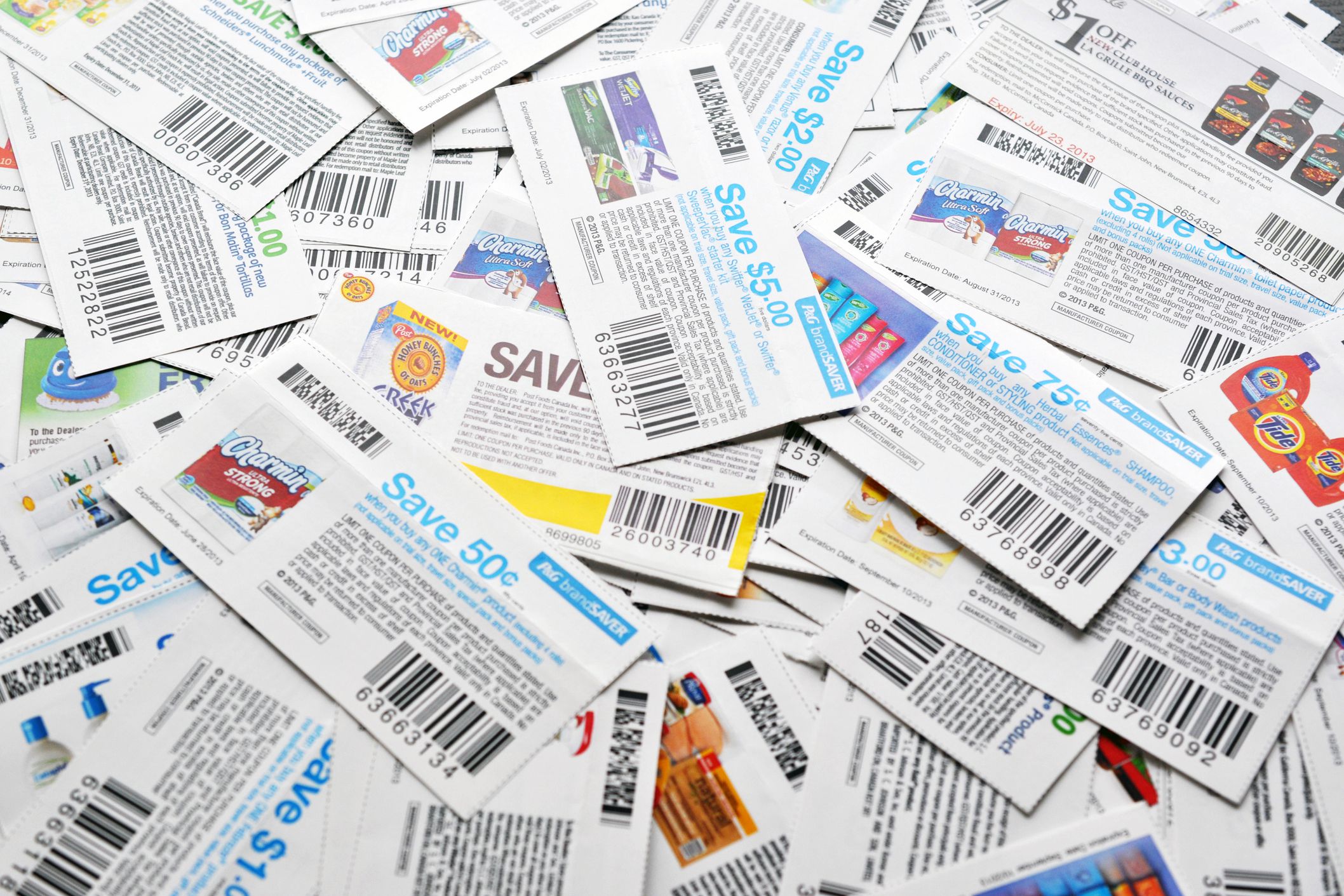
Aldi occasionally issues regional coupons or coupons associated with grand openings. Other than that, don’t bother looking — the focus is on keeping costs low by simplifying operations, and since Aldi negotiates for the lowest possible prices, it does not honor coupons for the few national brands in the store.
Related: Websites That Can Save You Money in a Recession
Wednesdays and Saturdays Are Special at Aldi
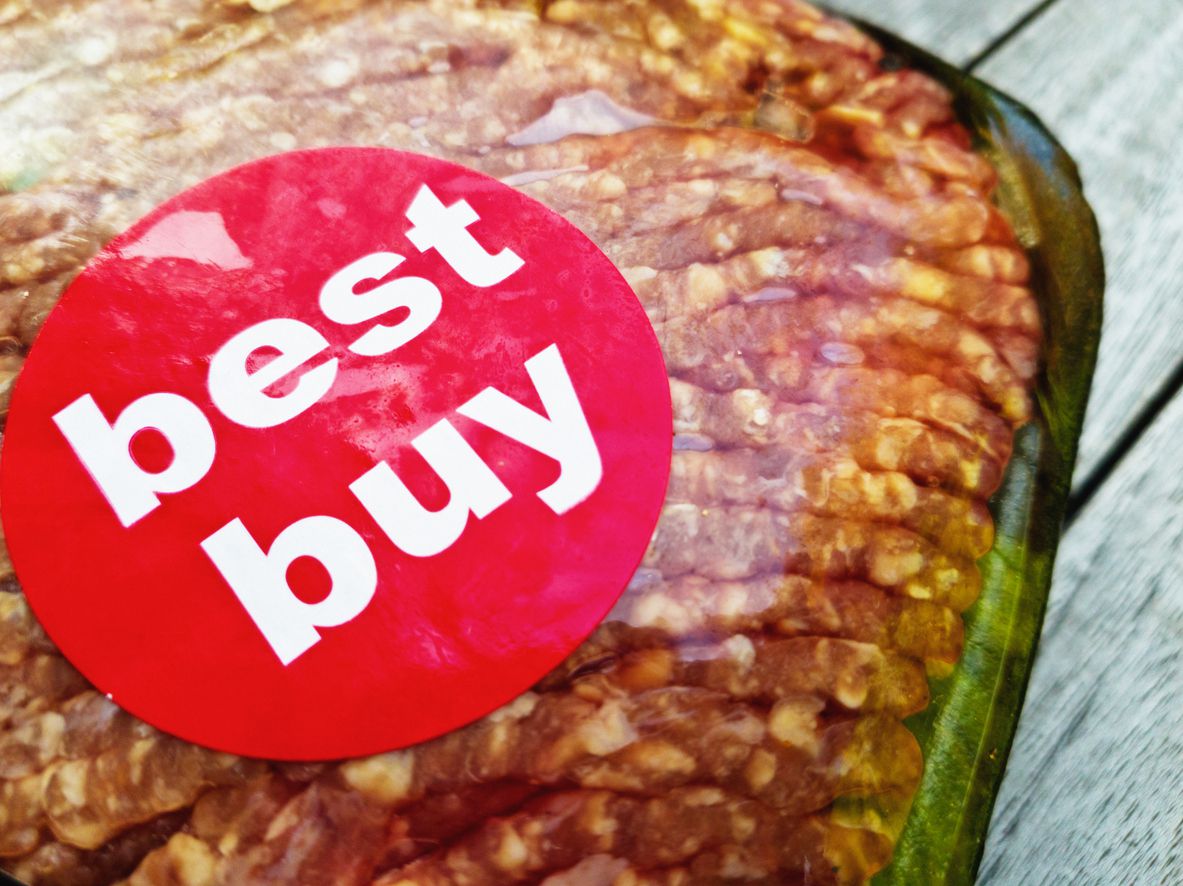
Aldi may not offer coupons, but it does have “Special Buys” every Wednesday and Saturday featuring items from all store departments, from electronics and clothing to furniture and garden equipment — just check out that aforementioned “Aisle of Shame.” Special Buys come with a 60-day refund policy.
Look for Random Deals Called ‘Aldi Finds’
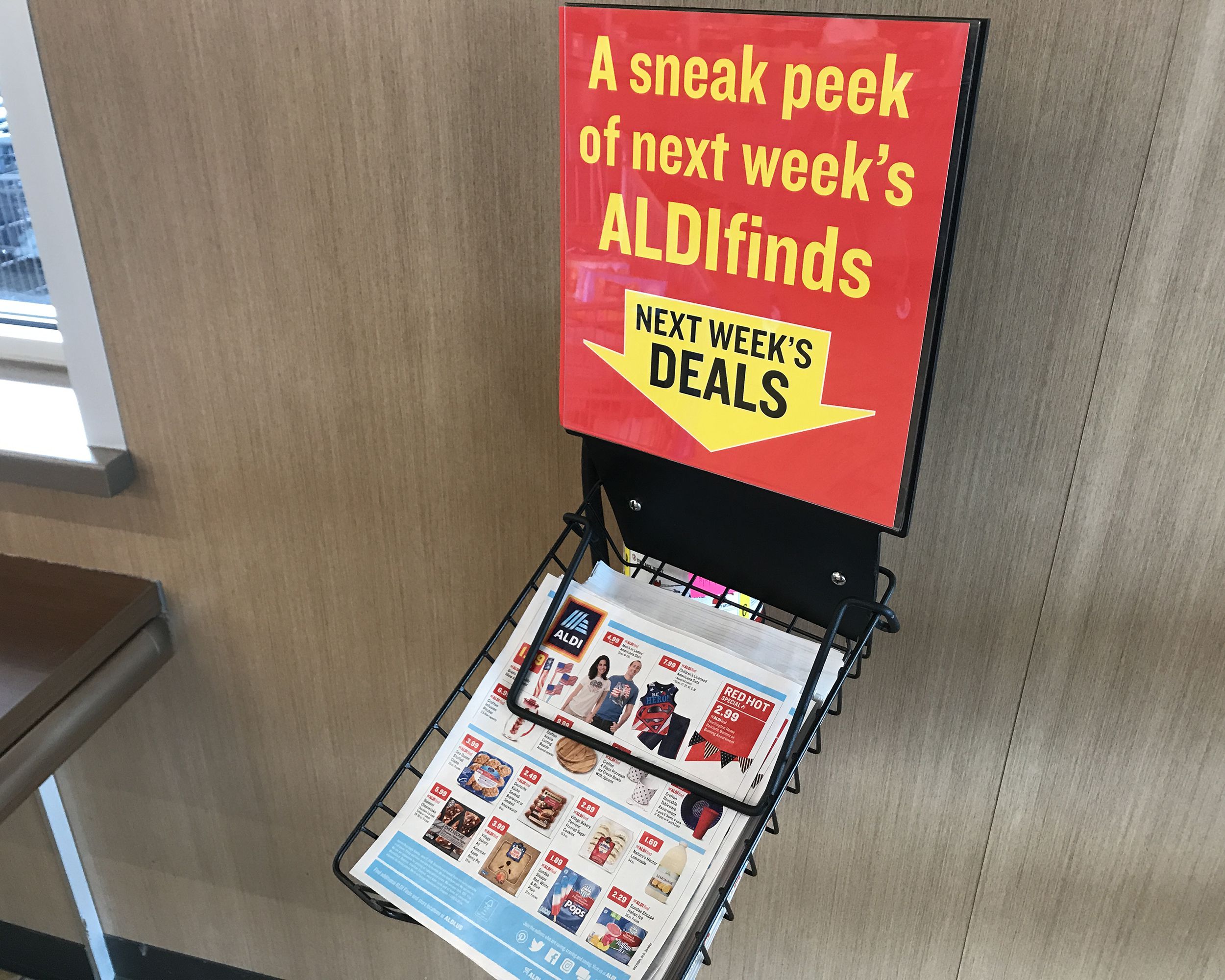
Similar to Special Buys, these spur-of-the-moment deals on premium food and household items don’t last long. Past “Aldi Finds” have included German specialty items, a Belgian waffle iron, Thai food, and seasonal holiday fare.
Related: Unexpected Finds Hidden in Convenience Stores
Shopping at Aldi Is Faster

Veteran Aldi shoppers know the brand is packaged with several barcodes, so cashiers don’t have to spend precious seconds searching for one — just to speed up the shopping experience. That’s also why, in addition to being smaller and easier to navigate than large grocery chains, the stores all have the same layout.
Related: How Companies Trick You Into Spending More Money
Aldi Sells Beer and Good Wine

Aldi touts partnerships with winemakers around the world and boasts at least 20 award-winning wines, which it sells in select locations. We tracked down several Aldi house wines that are worth trying. The company also sells beer, including a Beer of the Month, at certain locations. A store locator makes it easy to filter results to find out if there’s one nearby.
Aldi Has Good Whiskey, Too — Just Not in the U.S.

Aldi’s Highland Black Scotch Whisky ($17) and Glen Marnoch Islay Single Malt Scotch Whisky ($23) has earned gold medals from trade publication The Spirits Business, putting them right up there with costlier and better-known brands such as Chivas Regal. Unfortunately, they’re not available at Aldi in the United States.
Related: Best Whiskeys Under $50
Aldi Is Conquering Europe
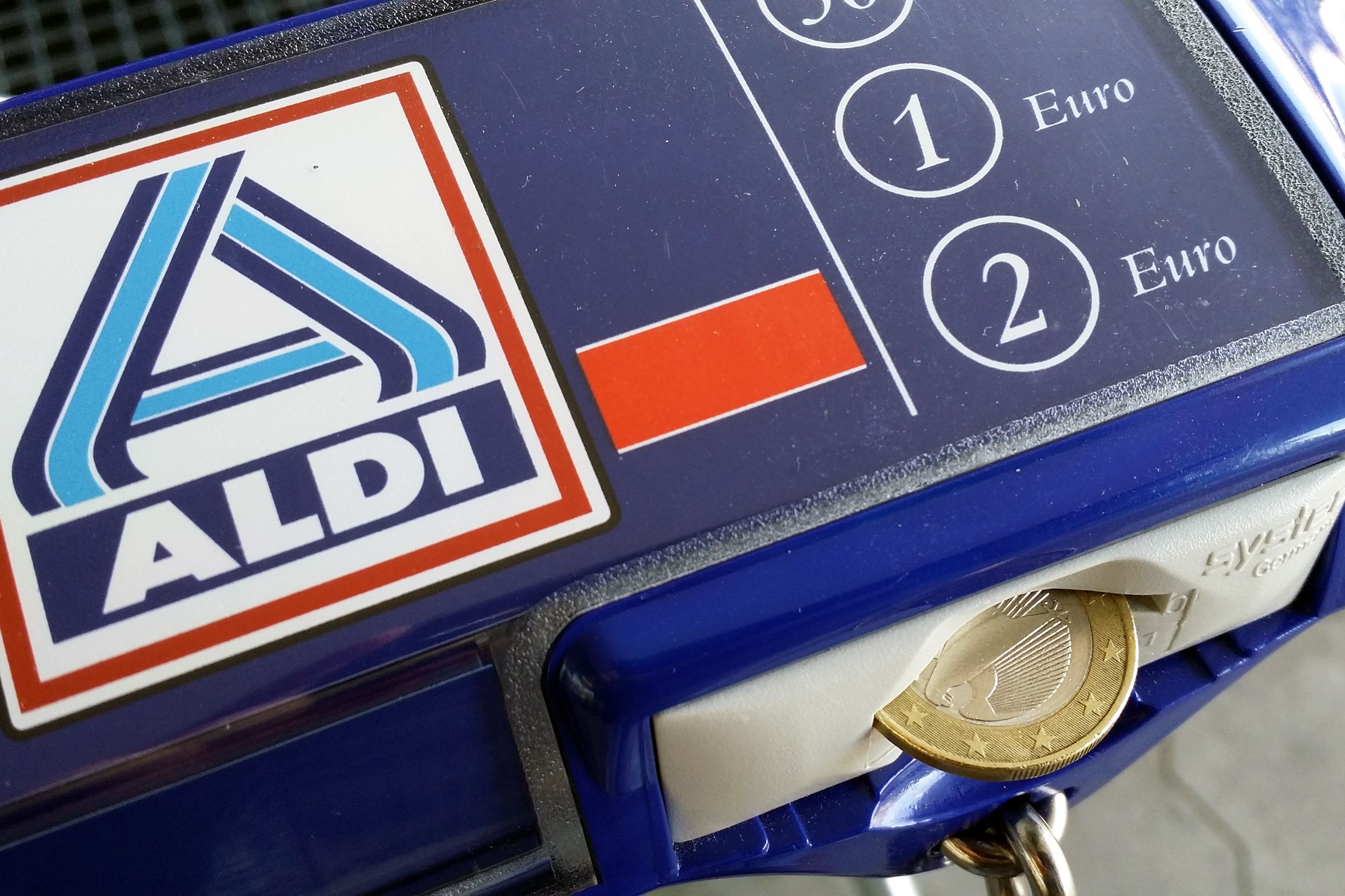
Aldi has roots dating back to 1913 in Germany but has expanded into a global juggernaut that now beats budget and premium chains alike in all corners of Europe. The chain has opened new U.K. locations nearly weekly since 2016, and has announced plans to expand to 1,200 stores by 2025. Aldi maintains a presence in 20 countries, including Switzerland, Portugal, and Spain. In Eastern Europe, Aldi has locations in Poland, Slovenia, and Hungary.
Related: 21 Secrets for International Online Shopping
Aldi Is on a Health Kick

Aldi has removed harmful oils, synthetic colors, and MSG from all Aldi brand products; expanded its organic produce offerings; and installed checkouts without sugary snacks displayed. It has also created a team of nutrition experts called the Advisory Council to make healthy eating suggestions to customers.
Aldi Has a Brand for Health-Conscious Shoppers
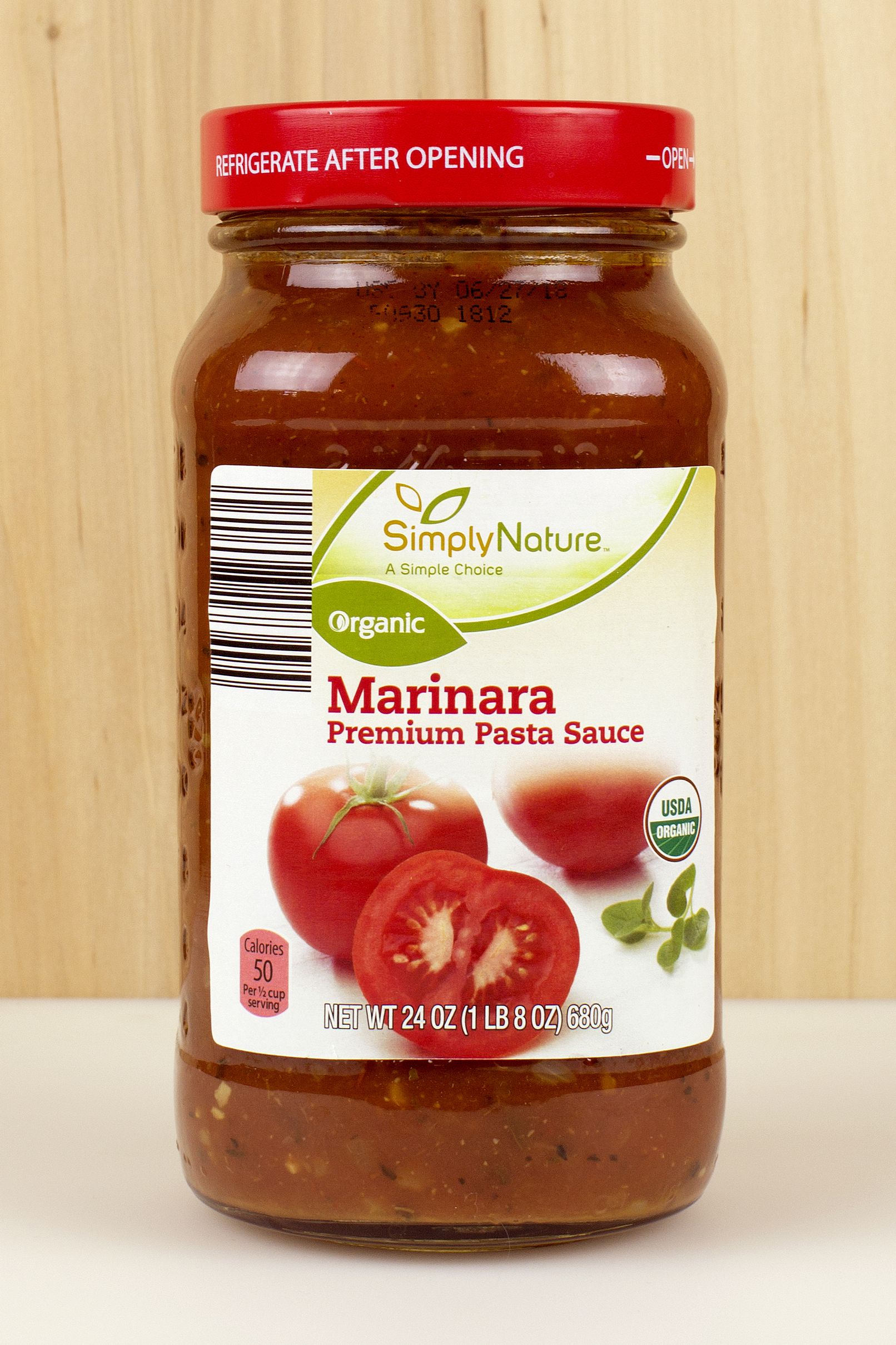
Aldi markets its Simply Nature brand for what it lacks: Every item in the line is made without anything on a list of more than 125 additives such as dioctyl sodium sulfosuccinate (and other things with really long names). The products, which include everything from cereal to salad, have no artificial ingredients or preservatives.
Related: How to Eat Healthy on a Budget
Aldi Has a Brand for Gluten-Sensitive Shoppers
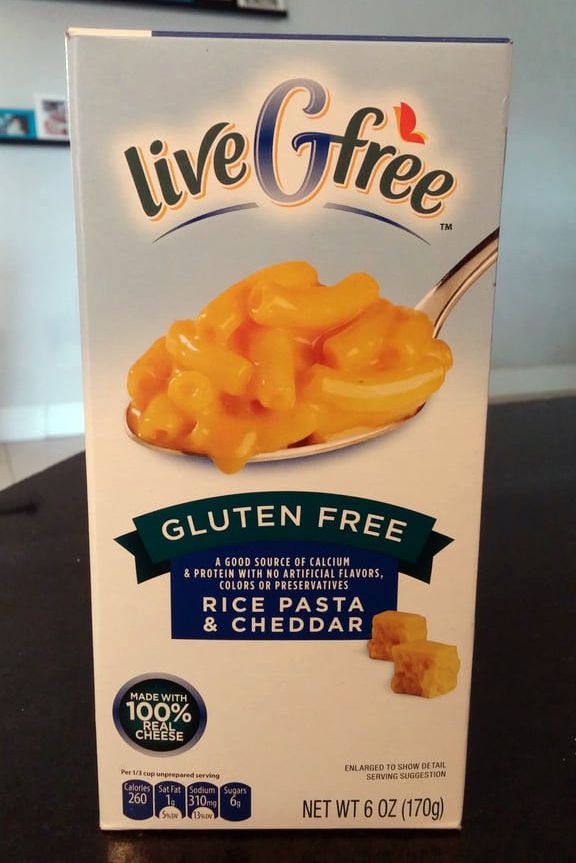
Aldi’s LiveGfree product line is for those going gluten-free. The line includes snacks and sweets, frozen foods, pantry items, broth, produce, and chips. Customers can also find gluten-free recipes on the Aldi website.
Related: 15 Tips To Eat Cheap and Stay Healthy With These Popular Diets
Aldi Has a Brand for Babies
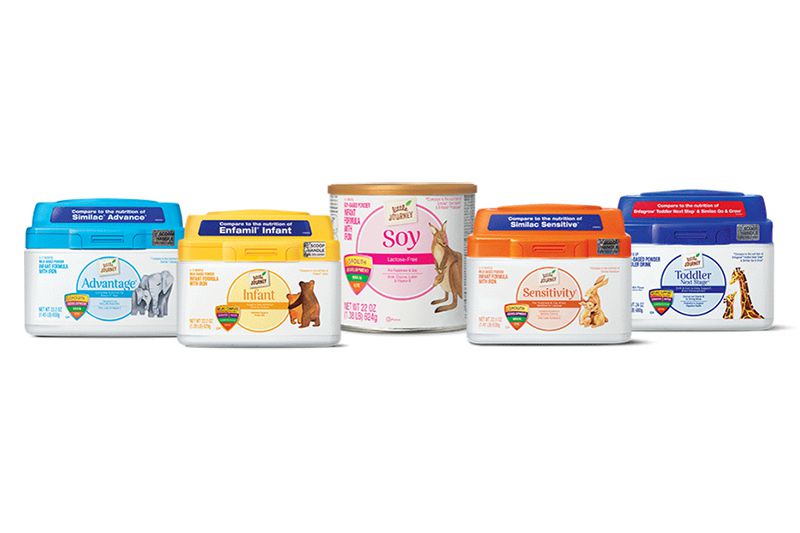
Aldi’s website lists a whole bunch of scary average costs for essential products for babies and young children. Aldi says that by buying diapers, wipes, and formula from its Little Journey baby product line, parents can expect to save as much as 50% — or $1,200 a year — with no sacrifice in quality.
There Are Few Surprises at the Register

Aldi prides itself on industry innovation but doesn’t stray too far when it comes to payment. It accepts all major credit cards, cash, most debit cards, and EBT. Neither WIC nor checks — which can slow down checkout — are accepted.
Related: Where You Can Order Groceries Online With an EBT Card
Where You Can Order Groceries Online With an EBT Card
Aldi Doesn’t Just Guarantee; It Double Guarantees
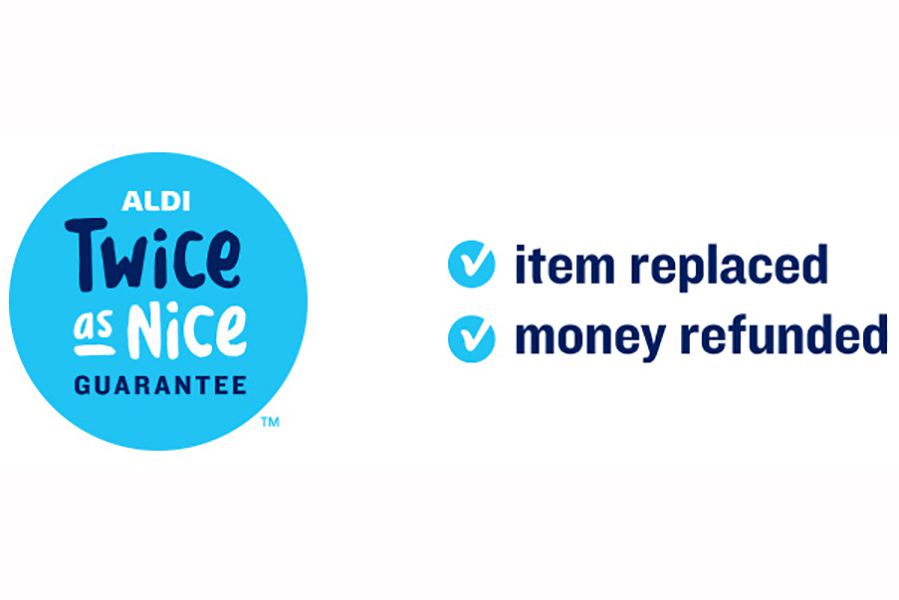
Aldi insists that its products meet or exceed the quality and flavor of national brands and backs that with a Double Guarantee. If shoppers don’t like something they bought, they can bring it back for a replacement — and a full refund.
Related: Products Costco Will Take Back That Are a Pain to Return Anywhere Else
The Founders Shared Shoppers’ Frugality
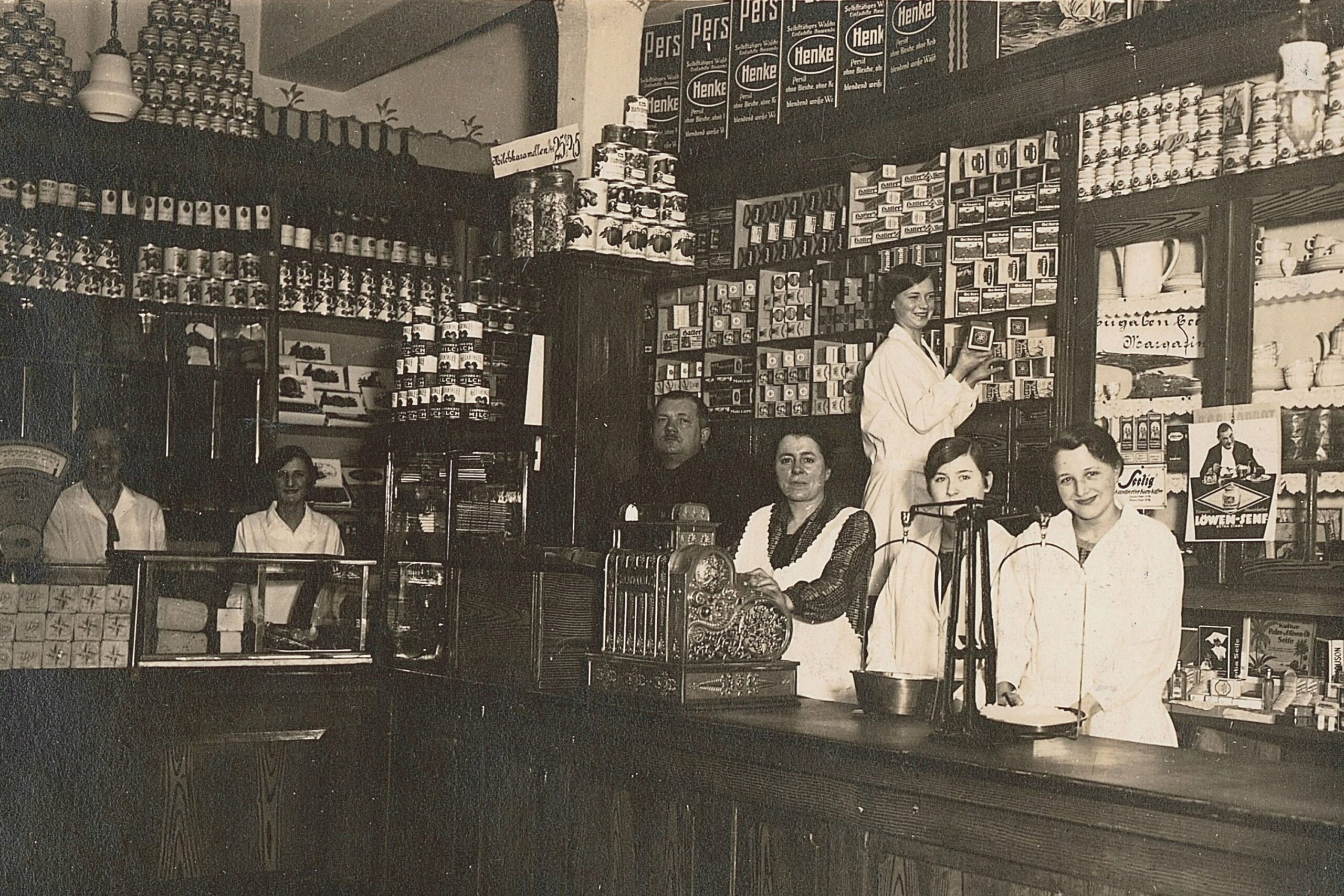
The late founders, Theo and Karl Albrecht, were cheap themselves. They didn’t just refuse to pay to advertise their stores, but used pencils down to the nub and even argued for a tax deduction on a ransom paid to get Theo back from kidnappers. But some in the younger generation of Albrechts get $36 million annually from a family trust.
Related: 25 Celebs Whose First Job Was Worse Than Yours
Aldi Is Really Two Companies
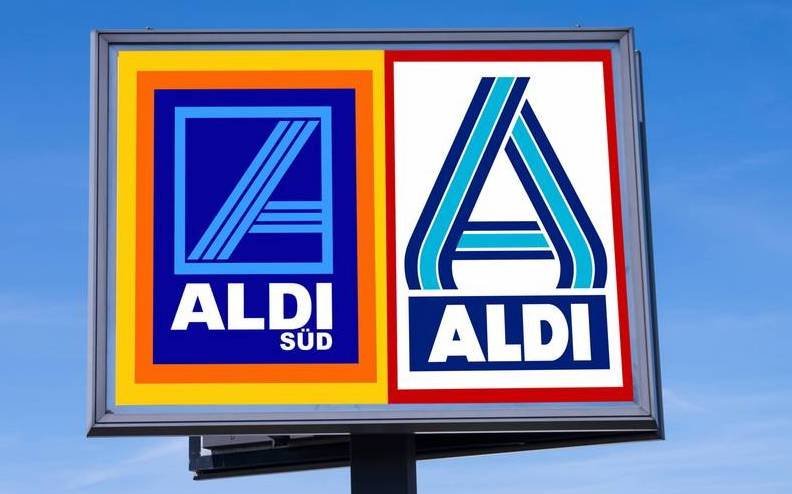
In 1960, the chain split into Aldi Nord and Aldi Süd when the Albrecht brothers fought over whether to sell cigarettes. They carved up the world into regions peacefully, but the family’s younger generation has been known to feud.
Related: Mountain Dew Moonshine and More Secret Brand Histories
Aldi Owns Trader Joe’s

America is the only place the two Aldi companies compete: Aldi Süd owns Aldi-branded stores here; Aldi Nord bought the Trader Joe’s chain in 1979, when it had only 18 stores. As of March, there were 555 Trader Joe’s stores in the U.S.
Related: Why Trader Joe’s Employees Are Surprisingly Helpful and Happy
Aldi Is on the March in America
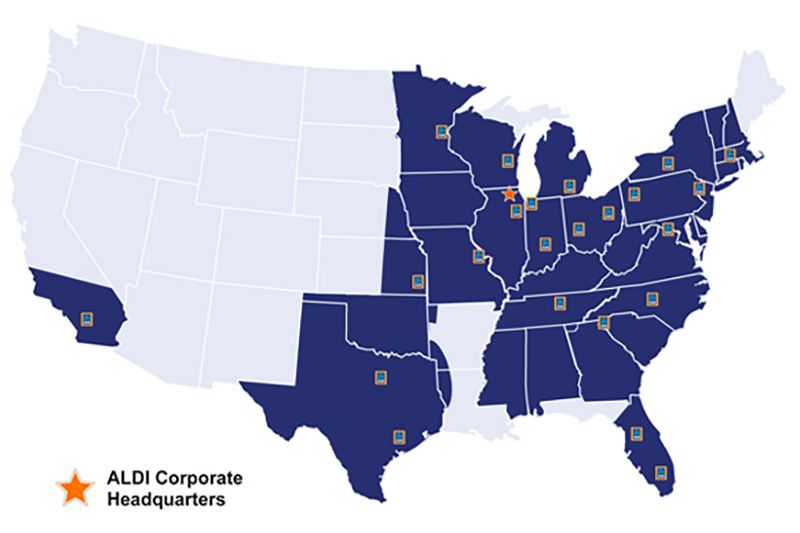
Aldi opened its first U.S. location in Iowa in 1976. Today, there are more than 2,200 Aldi stores in 38 states.
Related: 20 Foods Americans Eat Now That They Never Heard of 20 Years Ago
Aldi Is Getting a Major Makeover

Aldi announced a $1.9 billion spending spree to modernize and upgrade existing U.S. locations by 2022. Renovations include the introduction of green building materials and systems, including LED lighting and energy-efficient refrigeration. There are also plans to improve building aesthetics with natural lighting and open ceilings.
Related: 15 Smart Purchases That Pay for Themselves
The Peanut Butter Cups Won a Blind Taste Test

Though it surely chagrined Reese’s fans, Aldi won best peanut butter cup in a blind taste test by The Daily Meal. Honorable mention went to Trader Joe’s, and those beloved Reese’s Peanut Butter Cups? They warranted only runner-up status.
Related: Best Store-Bought Desserts from Trader Joe’s
Yes, You Can Get Delivery
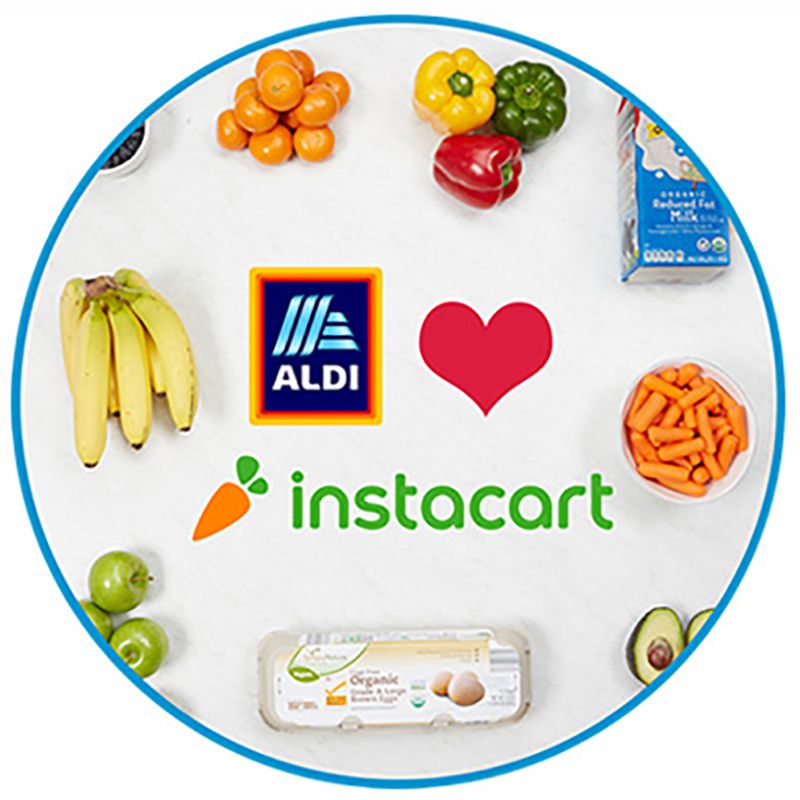
Aldi customers who don’t feel like going to the store can buy everything online and get it delivered the same day (sometimes in less than an hour), thanks to a partnership with Instacart.
Related: Online Grocery Delivery Comparison — Is One of These Services Right for You?
Aldi Is Hiring

Aldi employs more than 25,000 people across the United States and is looking for help to fuel its expansion. Employee hierarchy is simple, and the company vows to pay industry-leading wages and compensate employees with full benefit packages that include retirement plans and insurance.
Related: Costco and Other Companies Paying at Least $15 an Hour
